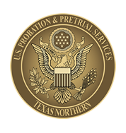We understand that sometimes your skills and background may allow you to be more successful and income-earning in a self-employment capacity as a business owner or self-employed independent contractor. Please understand self-employment is a privliege and opportunity, not a right, and must follow certain rules and expectations. You can only be self-employed on supervision after permission is given by your officer, and you must follow any directions he or she gives you in order to keep the privelege and opportunity. Overall, self-employment will require close review of all financial documents and transactions of your business. Therefore, you will be required to keep detailed records regarding your business activities and income.
To assist you in this endeavor, below are some good resources and links are also found below to help you be successful and follow the rules.
Any self-employment can only be approved if in compliance with national and local policies and guideliens which may require enhanced monitoring strategies to include:
- Routine monitoring of business documents such as sales records, balance statements, or quarterly tax returns
- Determining how you established your "self-employed" status, i.e., sole proprietorship, S corporation, Limited Liability Corporation
- If the business is established in a corporate form, reviewing the corporation filings to determine others involved in the corporation as officers or members of the board of directors, and to verify that there are no criminal association issues
- Interviewing the officers of the corporation to determine if they understand and are actively involved in running the business
- Contacting customers to ascertain the conduct of the business and how the offender is representing himself or herself, i.e., as an employee or the actual owner of the business. Such contacts should be done in such a way as to avoid jeopardizing the business relationship whenever possible; and any third-party risk warning to a customer that may result in a loss of that relationship must be authorized by the court
- Verifying that the offender and the business have complied with all state, local, and federal licenses and filing requirements and tax reporting obligations
Some added useful materials and resources can be found in Venturing beyond the Gates: Facilitating Successful Reentry with Entrepreneurship includes overviews of the fields of criminal justice, reentry, entrepreneurship, and microenterprise; opportunities represented by bridging these fields; funding opportunities; and profiles of microenterprise programs working with currently and formerly incarcerated individuals. It finds that, for some formerly incarcerated individuals, entrepreneurial training provides an opportunity to capitalize on their talents and skills, become agents of change in their lives and families, and contribute to the vibrancy and health of our communities.
Web resources for planning and running your own business:
Small Business Resources here and here (Small Business Development Center)
U.S. Dept. of Labor – Women’s Business Center site and locations
The U.S. Small Business Administration offers FREE online courses to help you start a business, manage a business, finance a business, work with the government as a contractor, and more.
Career DFW.org Entrepreneurship Web Portal
Here's a great U.S. Department of Labor web portal for those with disability barriers wanting to run their own business or be self-employed.
Starting Your Own Business
Hire Yourself: A Guide to Starting a Small Business for Ex-Offenders is a great 38 page manual with a much guidance and resources with was produced by the Texas Rio Grande Legal Aid organization as part of their Legal Assistance to Micro Enterprises Project (LAMP).
Starting Your Own Business (Small Business Administration-SBA)
Inc.com
N. Texas Small Bus. Development Center (SBDC)
Example Questions from Your Officer
1. When was the corporation formed and where?
2. Previous experience of officers/stockholders.
3. What products and/or services did the corporation sell, manufacture, etc.?
4. Where does the corporation operate?
5. Who are the customers?
6. Where are the assets of the corporation (officers, warehouses, equipment, inventories, etc.)?
7. Business hours?
8. What type of books are kept? Are they automated?
9. Who keeps the books and where?
10. Method of Accounting - Cash or Accrual?
11. Basis of Account - Calendar or Fiscal?
12. Ask the client to describe an organization of the accounting practice for the business - (i.e., the line of responsibility and duties of personal, if appropriate).
13. Has a CPA ever done a certified audit of the corporation? If so, who?
14. Has the client ever received property other than money for compensation?
15. Are sales invoices used? Prenumbered?
16. Are sales receipts recorded by cash registers o other computerized/mechanical devices?
17. Are daily receipts deposited in bank intact? How often? Where?
18. Were any funds borrowed from financial institutions?
19. Where any funds borrowed form shareholders?
20. Which expenses are paid by cash? Why?
21. Do you keep any special purpose accounts (i.e., payroll)?
22. How much cash on is usually on hand balance?
23. Which expenses are paid by cash? Why?
24. Are your checks prenumbered?
25. Who signs checks? Who else has authority to sign checks?
26. Were there any unusual events or expenses that occurred during the year that prevented the business from being operated normally (i.e., casualty, theft loss, law suits, adverse decisions, bankruptcy of a major customer, etc.)?
27. Have you made any major purchases over the last year?
28. What does your inventory consist of?
29. What records are maintained concerning the inventory?
30. Did you withdraw any inventory for personal use?
31. Did you file and retain tax forms from the previous tax year?
32. How is compensation paid to officers determined?
33. If there are any corporate owned or leased vehicles, who drives them?
34. Any leases entered into during the year?
35. Any loans from corporation to officers and stockholders?
36. Did the corporation pay for any personal expenses of the office/stockholders?
